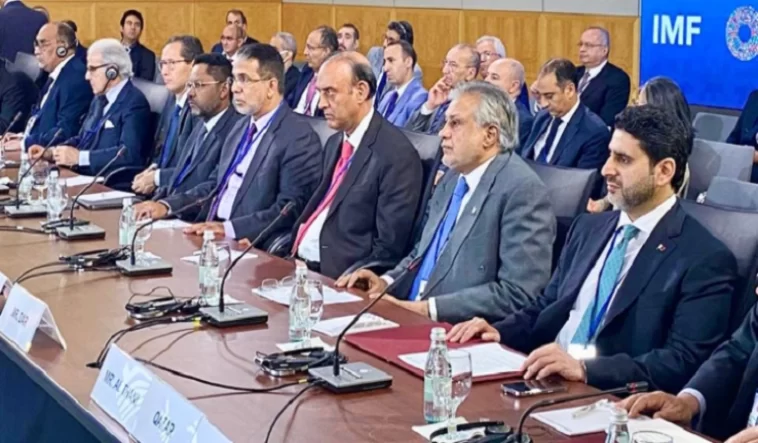Pakistan has reached a major financial milestone as it has agreed with the International Monetary Fund (IMF) on the terms of receiving a vital $1.1 billion in funding, as announced by Finance Minister Ishaq Dar. While the payment was postponed due to standard procedures, the agreement represents an important step in stabilizing the economic situation in the country
As a result of fiscal measures, such as taxation, the government has committed to raising Rs 170 billion in revenue. Additionally, a two-time increase in diesel levies by 5 rupees per liter will be implemented on March 1st and April 1st as part of their earlier pledge to enhance petroleum levies.
One of the key points of agreement with the IMF involves energy reforms, which will be discussed and approved by Pakistan’s cabinet. There is also a need to reduce the country’s circular debt, a form of public debt that accumulates in the power sector as a result of subsidies and outstanding bills. Although eliminating the circular debt entirely is not a pressing requirement, Pakistan has promised to not add any further circular debt related to gas.
Pakistan’s foreign exchange reserves have plummeted to their lowest point in a decade and only cover three weeks of imports. The inflation rate for the first seven months of the fiscal year has reached a record high of 25.4%, compared to 10.3% for the same period last year. By raising its key interest rate by 100 basis points to 17%, the Central Bank of Pakistan has taken steps to control inflation and achieve price stability to ensure sustainable economic growth.
As a result of the government’s efforts to prevent an external payments crisis, the current account deficit has shrunk to approximately $400 million in December 2022, down from $1.9 billion a year earlier. The nation’s currency, the rupee, reached a record low of 276.58 to the dollar in the interbank market on Feb 3rd and has dropped more than 35% in the past year.
Pakistan’s agreement with the IMF represents an important step in stabilizing its economy and securing its financial future.


